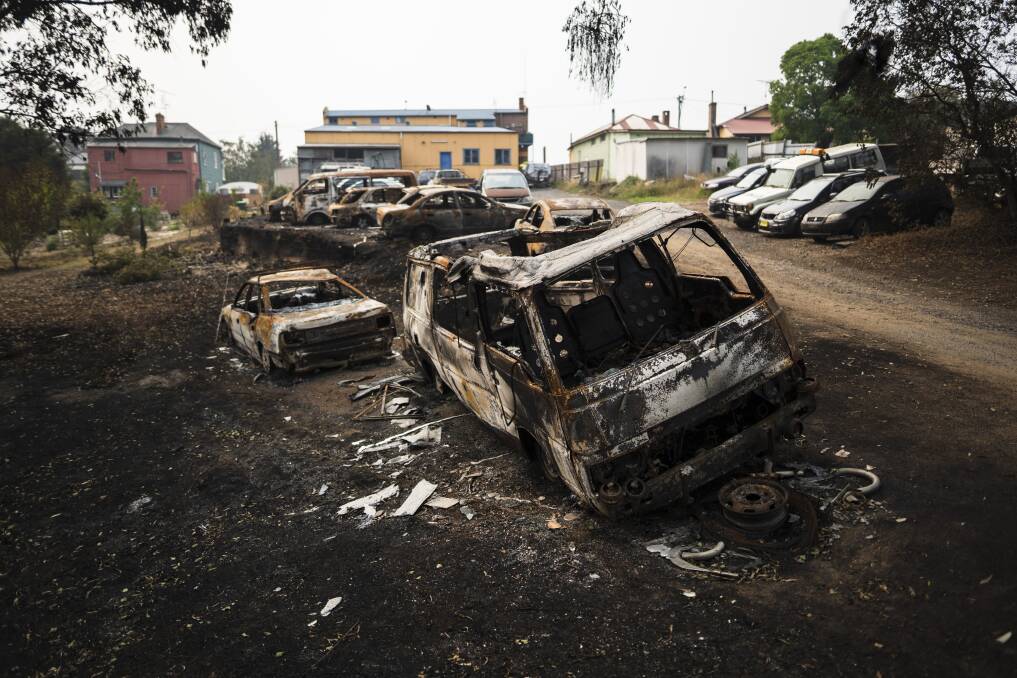
The Cobargo community is still reeling more than a year after fires devastated their NSW South Coast town, with residents who lost their homes bracing for another winter in caravans and other makeshift accommodation, a parliamentary inquiry has heard.
A senate inquiry examining the fallout to the Black Summer fires has also heard that for some residents the recovery had been "more harrowing" than the event itself, as they continue to struggle to access even the most basic support.
Representatives from volunteer groups and charity organisations fronted the inquiry's latest public hearings on Tuesday morning, providing on-the-ground accounts of the ongoing trauma in some of the South Coast communities hit hardest by last summer's bushfires.
Cobargo Bushfire Relief Centre coordinator Christine Walters said residents were facing the same challenges they confronted in the immediate aftermath of the disaster.
"At the beginning of the bushfire emergency, there was not enough help," she said.
"People were traumatised and didn't know where to seek assistance, nor did the have anywhere near adequate housing. 14 months on, that is still the case."
Ms Walters said while some residents had left or rebuilt their homes, others were still living in caravans, "half a shed", or in one of the temporary accommodation pods supplied by Andrew Forrest's Minderoo Foundation.
On some properties dangerous trees which had potential to collapse and kill people had still not been removed, she said.
"It is extremely worrying. A number of people have moved on, but people are still living in very, very compromised housing situations and with winter approaching it is a serious issue," she said.
Ms Walters decried the lack of information-sharing and coordination from state and local authorities. She also condemned the bureaucratic hurdles placed in front of bushfire victims, describing one case in which a woman was denied a NSW government grant because her income was $27 above the threshold.
"The failure at all levels of government to address these issues and to leave people pretty much to their own devices due to a lack of understanding, manpower or training or appropriate communication will result in a prolonged deterioration of people's physical and mental health," she said.
Catholic Social Services Australia's Leanne Atkinson, who has worked as a community facilitator across the Eurobodalla and Bega Valley council areas, said the basic needs of residents were not being met.
"Some of the community people I have spoken to have told me the journey since the fires has been more harrowing than the fire itself," she said.
In her evidence to Tuesday's hearing, grief counsellor Therese Kearney provided a distressing insight into the emotional trauma of bushfire disasters on children.
"Last February I went into primary schools into the east Gippsland area, and the feel that I even got from entering the school was quite eerie," she said.
"The children were very repressed and depressed. There was no children's noise on the playground. There was no joy."
Our journalists work hard to provide local, up-to-date news to the community. This is how you can continue to access our trusted content:
- Bookmark canberratimes.com.au
- Download our app
- Make sure you are signed up for our breaking and regular headlines newsletters
- Follow us on Twitter
- Follow us on Instagram







